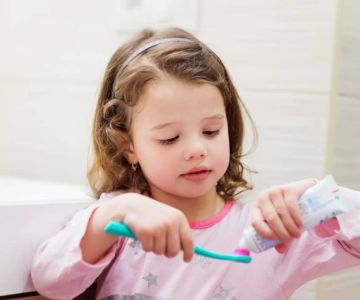Defining Language: More Than Just Words
Language is a complex system of communication used by humans to convey thoughts, emotions, and information. It is not merely about speaking words but also about understanding, interpreting, and expressing ideas in meaningful ways. Language can be spoken, written, or signed, and it shapes how we connect with the world and each other.
From birth, children are immersed in a world of language. The sounds, gestures, and expressions they observe form the foundation for their own language development. Language is deeply intertwined with culture and social interaction, making it a vital tool for human connection.
Stages of Oral Language Development in Children
1. Pre-linguistic Stage (Birth to 12 Months)
In the earliest months, babies communicate through crying, cooing, and babbling. Although these sounds don’t form words, they are crucial for practicing the muscles needed for speech. During this stage, infants start recognizing familiar voices and sounds, laying the groundwork for understanding language.
2. First Words and Early Vocabulary (12 to 18 Months)
Around their first birthday, many children begin uttering simple words like “mama” or “dada.” These early words often relate to their immediate environment or caregivers. Vocabulary grows gradually as children associate words with objects, people, and actions.
3. Two-Word Stage and Simple Sentences (18 to 24 Months)
Children start combining two words into simple phrases, such as “want toy” or “go park.” This stage marks the beginning of grammar and syntax understanding. Their ability to string words together reflects their growing cognitive and social skills.
4. Rapid Language Expansion (2 to 3 Years)
Between ages two and three, vocabulary explosion occurs. Children quickly learn new words daily and begin forming more complex sentences. They start using pronouns, plurals, and verb tenses, enhancing their ability to express thoughts clearly.
How Environment Influences Language Development
Children’s language skills are highly influenced by their environment. Exposure to rich language interactions, storytelling, and conversations accelerates learning. For example, children in families that read aloud daily or engage in meaningful dialogue tend to develop stronger oral language skills.
Conversely, limited exposure to language or inconsistent communication can delay speech development. That’s why early detection and intervention are critical for children showing signs of language delays.
The Role of Play in Enhancing Oral Language Skills
Play is a natural context where children experiment with language. Pretend play, role-playing, and interactive games encourage children to use new vocabulary and practice sentence formation. Parents and educators who engage children in play-based conversations help foster language growth in fun, meaningful ways.
Real-Life Story: How Early Language Support Made a Difference
Emma, a three-year-old from Ohio, was slow to start speaking. Concerned, her parents consulted a speech therapist who incorporated play and reading sessions into their routine. Within months, Emma’s vocabulary flourished, and she confidently began communicating her needs. This story highlights the importance of timely support and the powerful role of interactive learning.
Tips for Supporting Your Child’s Oral Language Development
- Talk Frequently: Narrate your day, describe objects, and ask questions.
- Read Together: Choose age-appropriate books and discuss pictures and stories.
- Encourage Listening: Play songs and rhymes that enhance auditory skills.
- Be Patient: Allow children time to express themselves without rushing or correcting harshly.
- Seek Help When Needed: Early intervention can prevent future difficulties.
When to Consult a Specialist
If your child shows signs of delayed speech, difficulty understanding simple instructions, or limited vocabulary by age two or three, consulting a speech-language pathologist is advisable. Early assessment ensures personalized strategies to support healthy language development.
Where to Find Reliable Guidance and Resources
For expert advice on child language development and support services, visit Dentistry Toothtruth. We provide trusted resources and professional recommendations tailored to your child’s needs.






 River City Orthodontics: Glen Allen5.0 (96 review)
River City Orthodontics: Glen Allen5.0 (96 review) Elm Park Dental4.0 (18 review)
Elm Park Dental4.0 (18 review) Aesthetic Smile Designs5.0 (114 review)
Aesthetic Smile Designs5.0 (114 review) Dental Smiles of West Chicago4.0 (124 review)
Dental Smiles of West Chicago4.0 (124 review) Cicero Dental Center4.0 (222 review)
Cicero Dental Center4.0 (222 review) Wayne Family Dentistry4.0 (46 review)
Wayne Family Dentistry4.0 (46 review) The Importance of Oral Health Education During Pregnancy for a Healthy Pregnancy
The Importance of Oral Health Education During Pregnancy for a Healthy Pregnancy Best Tips for Brushing Your Teeth Properly for Healthy Gums: Essential Techniques for Oral Health
Best Tips for Brushing Your Teeth Properly for Healthy Gums: Essential Techniques for Oral Health Why Skipping Dental Checkups Can Lead to Bigger Oral Health Problems
Why Skipping Dental Checkups Can Lead to Bigger Oral Health Problems Advantages of Porcelain Dental Restorations
Advantages of Porcelain Dental Restorations How Can Diabetes Cause Tooth and Gum Problems? Preventing and Managing Oral Health Issues
How Can Diabetes Cause Tooth and Gum Problems? Preventing and Managing Oral Health Issues Healthy Habits for Promoting Good Oral Health and Hygiene: Tips for a Healthy Smile
Healthy Habits for Promoting Good Oral Health and Hygiene: Tips for a Healthy Smile